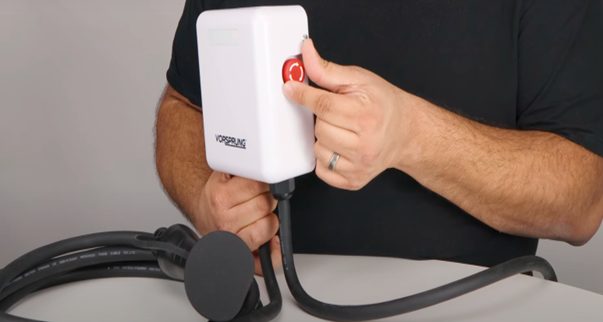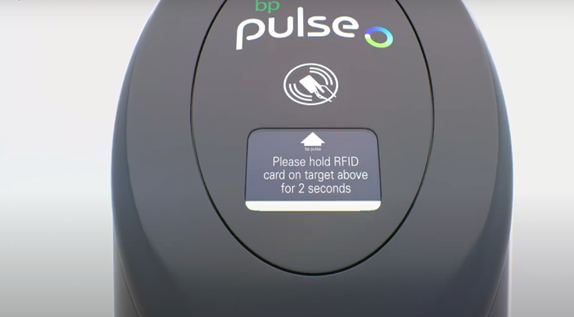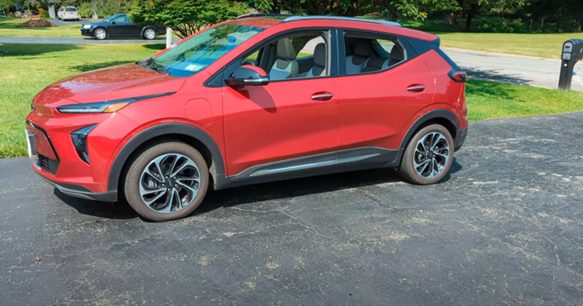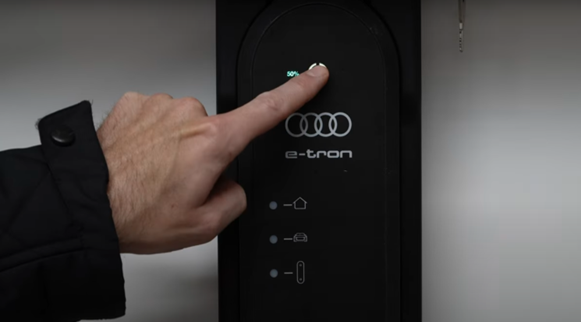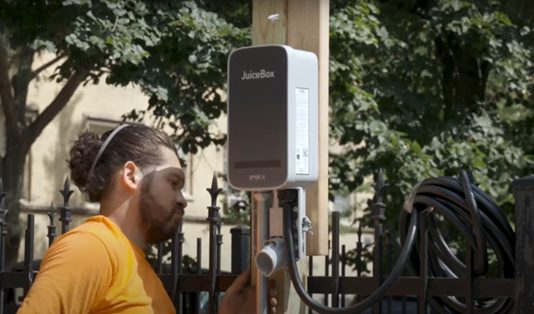Circuit overload is the most common culprit when you face that Nissan Leaf charger keeps tripping the breaker connected with 120V electric wiring.
If Nissan leaf Charging station is charged together with other appliances on the same circuit, the combined amperage draw might be higher than what the circuit capacity can carry hence tripping the breaker.
Such issues that may lead to the breaker tripping include; damages within the EVSE (home charging unit) or J1772 connector cable used for charging in the Nissan vehicle.
Also Read Tripping of Tesla Breaker,
HOW TO TROUBLESHOOT TESLA MODEL 3 CHARGER TRIPPING BREAKER ISSUES?
To learn more about this, please keep reading below for a comprehensive guide.
Does Nissan Leaf Level 1 Charger (120-volt) Cause Tripping?
A Nissan Leaf, in its turn, does AC charging over a J1772 connector known as SAE J1772 or Type 2 . This plugin is familiar for Level 1 and Level 2 EV charging.
The 12-15 amps arising from a usual Level 1 charger from a household 120-volt circuit are drawn.
This is because most residential circuits are of 15 or 20 amps, therefore, a Level 1 charger won’t exceed the highest limit of the circuit which will cause the breaker to trip.
10 Common Causes of Nissan Leaf Charger Tripping the Breaker
Here are some potential culprits or technical reasons why your Nissan Leaf charger might trip the breaker, applicable to both Level 1 and Level 2 charging:
- Circuit Capacity Exceeded
- Nissan Charger Malfunctioning
- Wiring Resistance
- Ground Fault Circuit Interrupter (GFCI) Trip
- Faulty Breaker: In rare cases, the breaker itself might malfunction and trip prematurely.
- Loose or Corroded Connections: Loose or corroded connections at the outlet, breaker, or within the charger can create resistance and trip the breaker.
- Incorrect Charger Selection: Using an incompatible charger or adapter for your Leaf and circuit rating can lead to overloading.
- Extreme Temperatures: Very hot or cold temperatures can affect the efficiency of the charging system and potentially trip the breaker.
- Internal Car Battery Issues: A failing or damaged 12v battery in your Nissan Leaf can interfere with the charging process and trip the breaker.
- Software Glitch: While uncommon, software glitches in the car’s charging system or the EVSE might cause malfunctions triggering a breaker trip.
Why does my Nissan LEAF stop charging?
While a tripped MCB or GFCI breaker is a common culprit that can prevent your Nissan Leaf from getting juiced up, there are other culprits too!
Battery Management System (BMS) Malfunction:
BMS, together with battery testing and monitoring functions, is designed to control and shape the battery’s health and its performance. The BMS of Electric Car responsibility can be undercut if it didn’t go to charging for safety reasons.
Nissan Charging Port Issues:
Cases of defective components found in the Nissan Leaf charging port are believed to have led to serious errors like broken pins or blown fuses, which could result in unstable power connection with the charger.
Communication Errors:
On some occasions the problem is with EVSE and if there will be a communication issue then charging will not proceed. That is most probably the case of software bug or hardware failure with the vehicle or while charging.
Extreme Hot or Cold Temperatures:
Exchange battery life could be drastically reduced by very hot or cold temperatures. The Nissan Leaf may be protected from harsh weather conditions such as hot and cold. Testing had been done to guarantee its safety.
Can a weak/worn GFI cause Nisssan Leaf Tripping?
Yes, in 80% cases!
Maintaining the current which passes through the “hot” and “neutral” power lines, GFCIs work continuously.
Suggestion to the ideal case is that the current entering the electric circuit on the hot wire will return on the neutral wire with only negligible current leakage (mA) through the ground.
GFCIs are shielded from leakage currents up to the threshold allowed by the internal regulations.
The GFCI therefore senses the detected leakage and if this level is somehow above the threshold, that at this level the breaker trips and cuts the power to the circuit.
How to Solve Nissan Leaf Charger Breaker Tripping Issues?
Here’s a practical solution to troubleshooting Nissan Charging issue and resolving the MCB breaker tripping issue:
Install a Dedicated Circuit for Nissan Charger:
Know the total average current of all the appliances (Total Load in Amps) which will connect to the circuit intended for electric vehicle charging stations.
To illustrate, when you plug a 15A breaker into a 8A outlet (15A breaker – 8A appliance = 7A available for charging). Because it uses Nissan Leaf charger (around 12-15 amps), the wall outlet can be overloaded.
Consider including the charger on a dedicated electrical circuit or consulting the electrician about upgrading the circuit capacity.
Inspect Nissan J1772 Charging Connector:
In the next phase, check for any cuts in the J1772 cable or EVSE insulation and connectors by visual inspection.
An experienced electrician has special tools to give a complete electrical diagnosis on the charging station to detect internal electric faults.
Try a Different 120V Charging Outlet (if safe):
In case a different 120V electric outlet is available on a separate circuit, it will be good for charging.
This kind of a step could assist to find out the exact cause either in a single outlet or circuit.
Consult a Nissan Dealer or Electrician:
For complicated electric issues and suspected internal violations, visit the dealer of Nissan or the qualified technician in person.
They can pinpoint the root cause of EV Charging not starting; recommend the most effective measures and even resolve the issue, such as the Nissan charger repair.
FAQs
Q: Why does my Nissan Leaf trip the GFCI and circuit breaker on 110v?
A: Possible reasons: GFCI sensitivity (leakage current) is probably in the charging system, excessive current drain (breaker trips first), or circuit overloads easily.
Q: Replaced GFCI, but Nissan Leaf still trips it and the breaker?
A: At this point, we would need to pinpoint whether the issue is within the charging system (car or charger) or circuit overload from other appliances. Think of a skilled electrician to stay away from poor repairmen.
Q: Is it safe to leave Nissan Leaf plugged in overnight (wall outlet)?
A: In case the charger functions fine and I of course has an outlet for level 2 charger either 110V outlet or 240V. The newer EVs and the charging stations are actually equipped with special safety systems which protect them when charging overnight.
Q: What causes both GFCI and breaker trips during charging?
A: Let the current fill in the loops, and once it fills in, set the extreme current as a tripper for the GFCIs and in turn over current as a breaker limit. Check for open circuits and damage in the charging system or in the wire.
Q: Can a dedicated 50A Circuit prevent Nissan Leaf Tripping Breaker?
A: A leaf Charger takes about 15 amp probably, meaning there would be barely any amp to connect to other applicants. The 50-amp dedicated line for Nissan charging would do this job wonderfully so that one could avoid quite noisy tripping of circuit breakers from time to time.






